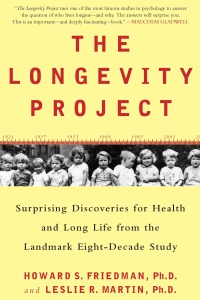Published: August 25, 2011

© istockphoto
Few people receive formal training on how to manage stress, which may explain why many of us turn to destructive ways of coping.
Although commonly practiced relaxation techniques such as yoga and meditation help, they may not be as effective as learning to sidestep potential stressors before they happen.
Receiving training in stress management will make us better at handling the ups and downs of daily life.
 The September issue of Scientific American spotlights the physical and mental toll that stress exerts. Splintered by Stress: The Good and Bad of Psychological Pressure
The September issue of Scientific American spotlights the physical and mental toll that stress exerts. Splintered by Stress: The Good and Bad of Psychological Pressure
Source: Scientific American
 Is stress triggered by your genes or by your lifestyle? Help the BBC investigate the causes of stress, and get personalized tips for improving your mental wellbeing.
Is stress triggered by your genes or by your lifestyle? Help the BBC investigate the causes of stress, and get personalized tips for improving your mental wellbeing.
Professor Peter Kinderman, who designed the Big Stress Experiment, explains what he’s hoping to learn about the causes and consequences of stress.
Stress is not a simple condition. There is no single cause. A whole variety of factors, from our genes to our childhood experiences, affect our mental well being.
We can easily study each trigger on its own, but that probably wouldn’t give us the whole picture. It comes as no surprise that people who’ve survived childhood traumas are more likely to have problems later in life. But not everyone who’s had a difficult past will feel the same. What we don’t yet understand is how important the different causes are in relation to each other. Are events in your past more important than events in the last year – or than the way you interact with your friends and family today?
The only way we can unravel such a complex web of causes is by surveying a large number of people. And the best way to do that is by using the internet.
Is stress triggered by your genes or by your lifestyle? Help us investigate the causes of stress, and get personalised tips for improving your mental wellbeing.
- Part of a real science experiment
- Takes just 20 minutes
The stress test
Source: BBC
Published: March 11, 2011

Getting married, exercising regularly, thinking happy thoughts, not working so hard— according to The Longevity Project are not shortcuts to immortality, and for certain groups of people, they can actually have the opposite effect!
Veronique Greenwood writes in the Atlantic about the Longevity Project which debunks conventional wisdom. that “Worrying is always bad for your health.
Optimistic people have a tendency to ignore details, meaning they don’t follow doctor’s orders correctly or lead themselves into unhealthy situations or addictions. It was the conscientious people—careful, sometimes even neurotic, but not catastrophizing—who lived longer, write Friedman and Martin, researchers at the University of California, Riverside. And, their studies show, some of what we think will benefit our children may actually rob them of years later in life. In the Terman study, precocious, active children who were sent to school a year early, as Philip was, tended to have emotional problems that led to unhealthy behaviors and shortened life span.
Source: The Atlantic
Published: February 23, 2011
Your blood and the level of a hormone in your spit could reveal if you’re on the point of burnout, according to research undertaken by Dr. Sonia Lupien and Robert-Paul Juster of the Centre for Studies on Human Stress of Louis-H. Lafontaine Hospital and the University of Montreal. In addition to professional and personal suffering, burnout puts distressed workers at further risk of physical and psychological problems if ignored. This is significant, as burnout, clinical depression, or anxiety related to the workplace affects at least 10% of North Americans and Europeans, according to estimates prepared by the International Labor Organization. [continue reading…]
 The September issue of Scientific American spotlights the physical and mental toll that stress exerts. Splintered by Stress: The Good and Bad of Psychological Pressure
The September issue of Scientific American spotlights the physical and mental toll that stress exerts. Splintered by Stress: The Good and Bad of Psychological Pressure


